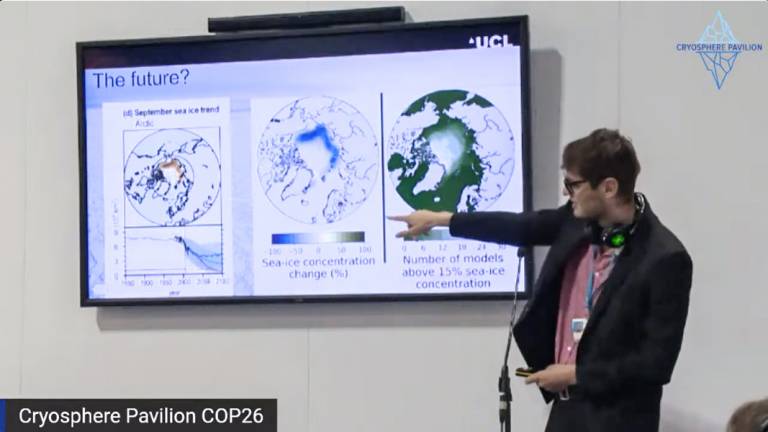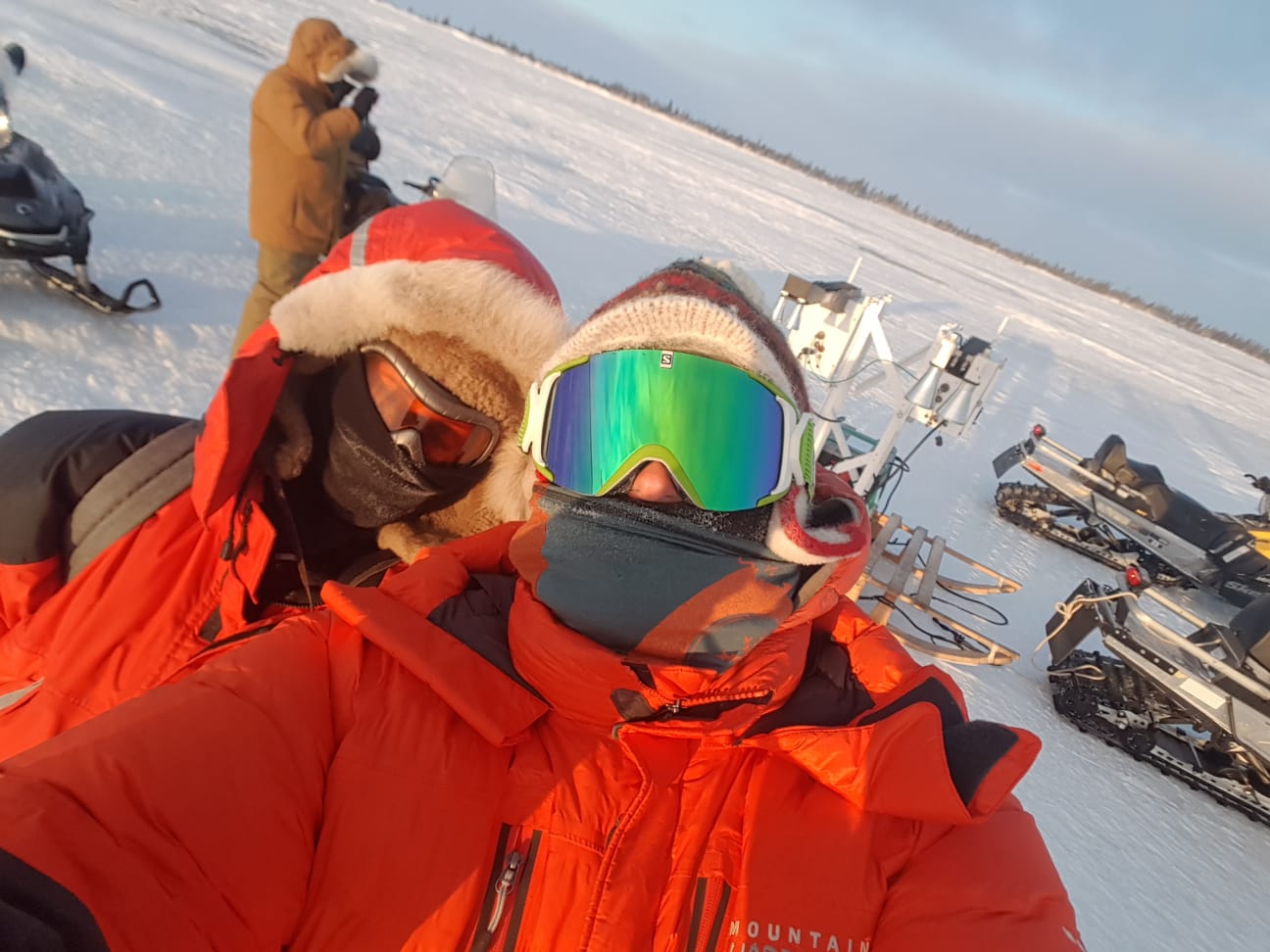Robbie Mallett reporting from COP26, Glasgow
12 November 2021
UCL is an official “Observer Institution” to the UN conferences on climate change and sent a number of delegates to this year’s COP26 in Glasgow. Robbie, our PhD student was chosen as one of the participants.

I was lucky to be chosen as a delegate by the UCL Environment Domain based on my recent research into sea ice thinning in the North East passage of the Arctic Ocean. At the conference I helped to run the Cryosphere Pavillion, which functioned as a hub for discourse and action on the earth’s fastest changing natural system.
COP26 has many facets - politicians posture, they negotiate, and they also listen. Much of the posturing and negotiating is done in on two large stages and a number of back rooms. But in between these sessions, policymakers often retire to a conference hall full of “pavilions”, where they listen to experts. These are essentially a series of around 100 three sided rooms, which represent the interests of countries and large organisations such as the world bank and the WWF. This year more abstract things had their own pavilions, such as methane, wind power, and forests. Because the 2019 COP25 was originally supposed to be held in Chile, a Cryosphere Pavillion was established. Although this was slightly incongruous when the conference was then moved to Madrid, the pavilion was such a success that the pavilion continued.

Caption: Sea ice research: -23°C all day on Ramsay Lake near Churchill, Canada.
My role at the cryosphere pavillion switched between managing invited speakers, helping the audience navigate our silent-disco-style headphones, and engaging with passers-by on cryospheric change. In particular, we were trying to raise the profile of the cryosphere in the discourse surrounding global warming. COP is organised by the UN, which is constituted of nation states; this can lead to the cryosphere being neglected because Antarctica and the Arctic Ocean largely fall outside national boundaries. As well as helping with the running of the pavilion, I also had the opportunity to give two talks - one on sea ice and permafrost, and the other on IPCC model projections of sea ice decline.
Overall, I came away with mixed feelings about my work. I sometimes felt that we weren’t fully connecting with our target audience. But I also sensed that this year was the first year that the science was accepted by the policy and political communities, and scientists were there to inform rather than to argue. Perhaps the word “unequivocal” in the headline of this year’s IPCC report contributed to this. I also feel like my experiences at COP may be of increasing benefit throughout my career, as my work may turn to face policy questions more than scientific ones. In any case, I left extremely grateful for the contacts and friends I made, and for the insight I gained into how science translates into policymaking.
Links:
- Robbie Mallett's academic profile
- @RobbieMallett talks at COP26 in the Cryosphere Pavilion. "Sea ice decline and permafrost vulnerability: Playing with ice and fire?"
- Let’s talk cryosphere, COP26. Robbie Mallett speaks about his experience in the Cryosphere Pavilion at COP26 in Glasgow.
 Close
Close

